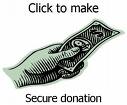Navigation |
The Truth About Prescription DrugsBy Paola Martinez, submitted by Anonymous on Thu, 12/01/2012 - 05:48
Recreational use of prescription drugs is a serious problem with teens and young adults and still many parents are unaware of the problem.
A prescription drug is a licensed medicine that is regulated by legislation to require a prescription before it can be obtained. The term is used to distinguish it from over-the-counter drugs which can be obtained without a prescription.
Recreational use of prescription drugs is a serious problem with teens and young adults and still many parents are unaware of the problem. National studies show that a teen is more likely to have abused a prescription drug than an illegal street drug. Many teens think prescription drugs are safe because they were prescribed by a doctor. But taking them for non-medical use to get high or “self-medicate” can be just as dangerous and addictive as taking illegal street drugs. There are very serious health risks in taking prescription drugs. This is why they are taken only under the care of a doctor. And even then, they have to be closely monitored to avoid addiction or other problems.
Due to their potential for abuse and addiction, many prescription drugs have been categorized by the US Drug Enforcement Administration in the same category as opium or cocaine. These include Ritalin and Dexedrine (stimulants) and the painkillers OxyContin, Demerol and Roxanol. Many illegal street drugs were at one time used or prescribed by doctors or psychiatrists but were later banned when the evidence of their harmful effects could no longer be ignored. Examples are heroin, cocaine, LSD, methamphetamine and Ecstasy.
Prescription drugs that are taken for recreational use include the following major categories: depressants, opioids and morphine derivates, stimulants and antidepressant.
Depressant, opioids and antidepressant are responsible for more overdose deaths (45%) than cocaine, heroin, methamphetamine and amphetamine (39%) combined. In the United States, the most deaths used to take place in inner cities in African-American neighborhoods, but they have now been overtaken by white rural communities. The same trend can be seen in the rates of hospitalization for substance abuse and emergency hospitalization for overdoses.
Every day in the US, 2,500 youth (12 to 17) abuse a prescription pain reliever for the first time. In the US alone, more than 15 million people abuse prescription drugs, more than the combined number who reported abusing cocaine, hallucinogens, inhalants and heroin.
Prescription drug abuse causes the largest percentage of deaths from drug overdosing. Of the 22,400 drug overdose deaths in the US in 2005, opioid painkillers were the most commonly found drug, accounting for 38.2% of these deaths.
Medicines are drugs that are intended to speed up or slow down or change something about the way a body is working, to try to make it work better. Sometimes they are necessary. But they are still drugs.
To find out the truth about drugs log on to www.drugfreeworld.org. And for the person with a drug problem, there are also real solutions to addiction. Narconon, a drug rehabilitation program that utilizes the methods of L. Ron Hubbard, has a success rate of more than 75%. (www.narconon.org)
The best solution, however, is not to begin using drugs in the first place. Comments |
Newswire
Thu 16 February 2012
Thu 19 January 2012
Wed 18 January 2012
Mon 16 January 2012
Sun 15 January 2012
Sat 14 January 2012
Fri 13 January 2012
Thu 12 January 2012
Other Press
Thu 19 January 2012
Thu 5 January 2012
Thu 22 December 2011
Wed 9 November 2011
Wed 19 October 2011
Search |




